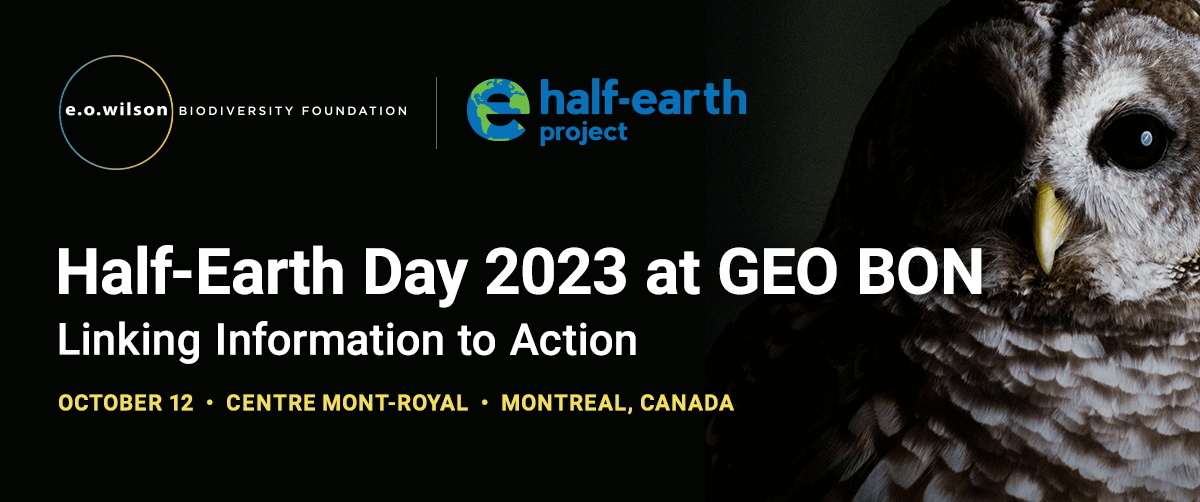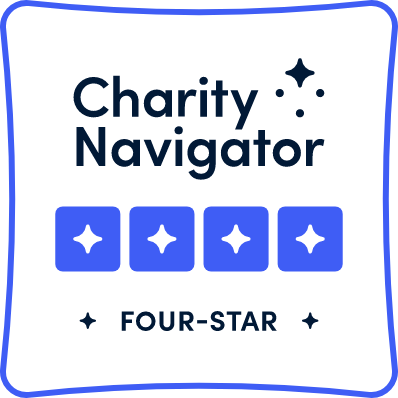About Our Half-Earth Day Speakers

Sean Breyer, Program Manager, Living Atlas of the World, Esri
Sean Breyer is Esri’s Program Manager for ArcGIS Living Atlas of the World. As such, he oversees the world’s foremost collection of global geographic information and services, including maps, map layers, services, and apps for location analysis. Since joining Esri in 2011, Sean has helped federal, state, and private entities develop geospatial technology strategies as they plan new projects, manage risk, and develop data-driven solutions to some of the world’s most challenging issues. Before coming to Esri, Sean worked at Rand McNally as Director of Data Services. His other roles have included Director of GIS at the South Carolina Department of Commerce, and as Lead GIS and Database Manager at Sandia National Laboratories Environmental Restoration Program.
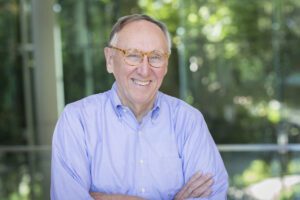
Jack Dangermond, Founder and President, Environmental Systems Research Institute (Esri)
A landscape architect by training, Jack Dangermond founded Environmental Systems Research Institute (Esri) in 1969 with a vision that computer mapping and analysis could help design a better future. Under Dangermond’s leadership, that vision has continued to guide Esri in creating cutting- edge GIS and Geodesign technologies used in every industry to make a difference worldwide.
Dangermond fostered the growth of Esri from a small research group to an organization recognized as the world leader in GIS software development. Esri employs more than 4,000 people worldwide; many who shared his passion for GIS in the early days are still with the company and remain dedicated to helping our users be successful.
Dangermond’s vision for Esri goes beyond building the leading GIS technology. He keeps the company mindful of global challenges and the needs of specific industries. The ongoing drive is to engineer ArcGIS to aggregate and integrate increasing quantities of data, to visualize and analyze the data to gain holistic understanding, and to help individuals and organizations make impactful evidence-based decisions.
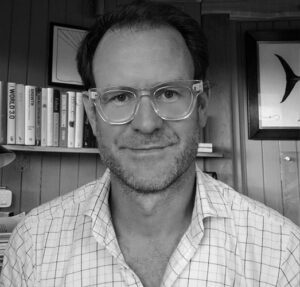
James d’Ath, Technical Lead for Data & Analytics, TNFD
James d’Ath has a wide range of experience working across financial markets and sustainability. In 2015, he founded a sustainable finance advisory business. His current roles include Technical Lead for Data & Analytics at TNFD, Co-Chair of the Nature-related Data Catalyst, Finance Sector Engagement Specialist for Global Canopy, Senior Consultant for World Economic Forum and ESG Director for Edison Group.

Wade Davis
Wade Davis is Professor of Anthropology and the BC Leadership Chair in Cultures and Ecosystems at Risk at the University of British Columbia. Between 2000 and 2013 he served as Explorer-in-Residence at the National Geographic Society. Named by the NGS as one of the Explorers for the Millennium, he has been described as “a rare combination of scientist, scholar, poet and passionate defender of all of life’s diversity.”
An ethnographer, writer, photographer and filmmaker, Davis holds degrees in anthropology and biology and received his Ph.D. in ethnobotany, all from Harvard University. Mostly through the Harvard Botanical Museum, he spent over three years in the Amazon and Andes as a plant explorer, living among 15 indigenous groups while making some 6000 botanical collections. His work later took him to Haiti to investigate folk preparations implicated in the creation of zombies, an assignment that led to his writing The Serpent and the Rainbow (1986), an international best seller later released by Universal as a motion picture. In recent years his work has taken him to East Africa, Borneo, Nepal, Peru, Polynesia, Tibet, Mali, Benin, Togo, New Guinea, Australia, Colombia, Vanuatu, Mongolia and the high Arctic of Nunavut and Greenland.
Davis is the author of 375 scientific and popular articles and 23 books including One River (1996), The Wayfinders (2009), Into the Silence (2011) and Magdalena (2020). His photographs have been widely exhibited and have appeared in 37 books and 130 magazines, including National Geographic, Time, Geo, People, Men’s Journal, and Outside. He was curator of The Lost Amazon: The Photographic Journey of Richard Evans Schultes, first exhibited at the National Museum of Natural History, Smithsonian Institution. In 2012 he served as guest curator of No Strangers: Ancient Wisdom in the Modern World, at the Annenberg Space for Photography in Los Angeles. He was curator of Everest: Ascent to Glory, Bowers Museum, February 12-August 28, 2022. National Geographic has published two collections of his photographs, Light at the Edge of the World (2001) and Wade Davis: Photographs (2018).
His 40 film credits include Light at the Edge of the World, an 8-hour documentary series written and produced for the National Geographic. His most recent film, El Sendero de la Anaconda, a 90-minute feature documentary shot in the Northwest Amazon, is available on Netflix.
A professional speaker for 35 years, Davis has lectured at over 200 universities and 250 corporations and professional associations. In 2009 he delivered the CBC Massey Lectures. He has spoken from the main stage at TED five times, and his three posted talks have been viewed by 8 million. His books have appeared in 22 languages, with close to a million in world wide sales.
Davis, one of 20 Honorary Members of the Explorers Club, is Honorary Vice-President of the Royal Canadian Geographical Society, and recipient of 12 honorary degrees, as well as the 2009 Gold Medal from the Royal Canadian Geographical Society, the 2011 Explorers Medal, the 2012 David Fairchild Medal for botanical exploration, the 2015 Centennial Medal of Harvard University, the 2017 Roy Chapman Andrews Society’s Distinguished Explorer Award, the 2017 Sir Christopher Ondaatje Medal for Exploration, and the 2018 Mungo Park Medal from the Royal Scottish Geographical Society. In 2016, he was made a Member of the Order of Canada. In 2018 he became an Honorary Citizen of Colombia.
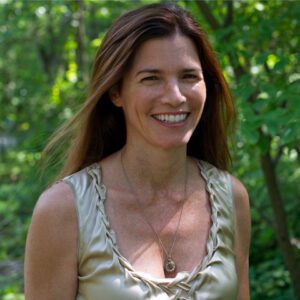
Paula J. Ehrlich, President & CEO of the E.O. Wilson Biodiversity Foundation
Paula J. Ehrlich, DVM, PhD, is President & CEO of the E.O. Wilson Biodiversity Foundation, whose mission is to reimagine the way we care for our planet through actionable scientific research that supports communities in their stewardship of biodiversity.
Dr. Ehrlich is also co-Founder of the Half-Earth Project and has led the development of the Half-Earth Project Map, a global, spatially-explicit, and taxonomically comprehensive map of species, which informs how well conserved places are protecting species and identifies priorities for future conservation. She is founder of Half-Earth Day, which brings together world-wide participants from across disciplines to share perspectives and thought leadership on how to achieve Half-Earth and ensure the health of our planet for future generations.
Dr. Ehrlich has over 30 years of strategic scientific management and research expertise, and diverse academic, non-profit, and corporate leadership experience. Her current work embodies the hopes of the greatest naturalist of our time, E.O. Wilson.
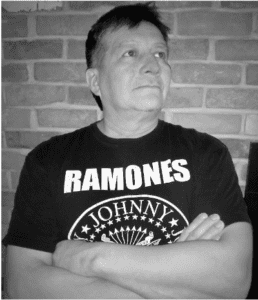
Sam Hunter, Natural Resources Monitor, Weenusk First Nation
Sam Hunter was born October 1965 at Hawley Lake, located on the southern shore of Hudson Bay, at Ontario’s far north. While growing up, he lived in tents, sod teepees, at his homelands which many term “trapline.” Today, Sam is currently building an energy efficient home, which will be cool in the summer, warm during the winter months. The new home will harness energy from the sun, wind and water. This is an essential element for the green economy concept.
Currently, Sam lives in the remote Cree community of Peawanuck, Ontario – in the middle of Polar Bear Provincial Park. He grew up in the wilderness and practises traditions regularly. Being in a remote community, he isn’t totally dependant on his survival skills, however, he chooses to live his life that way as that is what makes him happiest.
Sam has a lifetime of stories to tell, from being born in a tent to being dragged out of his tent by a polar bear. He was forced to attend residential school as a child, where he would later lose his brother. At the age of 14 he started taking tourists out to see polar bear, earning him the nickname “Polar Bear Guide”. So many stories that he usually tops the last one, each time he gets together with family and friends.
Sam mentors youth with trips to the wilderness and is very interested bringing in outside programming mentors to teach science, climate change, adaptations, and visual arts. Sam understands the benefits of mentoring young people. Stories of teens whose lives have been changed by a mentoring adult, is powerful.
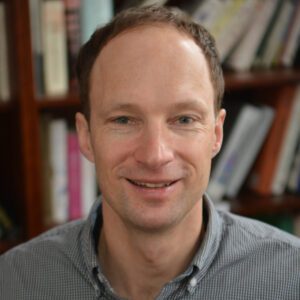
Walter Jetz, Scientific Chair, E.O. Wilson Biodiversity Foundation
Walter Jetz, MSc, PhD is a Professor of Ecology and Evolutionary Biology and Adjunct Professor in the School of Forestry and the Environment at Yale University. Dr. Jetz is Director of the Yale Center for Biodiversity and Global Change, which links scientists, students and practitioners engaged in the environment, biological, informatics, policy or health aspects and implications of global biodiversity change. Dr. Jetz leads the Map of Life at Yale University, which utilizes geospatial species distribution data and analytics to guide where we have the best opportunity to conserve the most species.
Dr. Jetz’ work addresses patterns and mechanisms of changing biodiversity distribution and the resulting implications on conservation and environmental management. His research combines remote sensing, phylogenetic, functional, and spatiotemporal biodiversity data with new modeling approaches and informatics tools. Dr. Jetz is particularly interested in how environmental, ecological, and macroevolutionary mechanisms combine to determine the co-occurrence of species and the structure of species assemblages.
In addition to his work at Yale, Dr. Jetz chairs the Intergovernmental Science-Policy Platform on Biodiversity and Ecosystem Services (IPBES) Task Group on Biodiversity Indicators and is Co-Lead of the GEO BON Working Group on Species Distributions. Dr. Jetz was previously a professor of biological sciences at the University of California San Diego. Dr. Jetz earned his MSc in Integrative Bioscience and PhD in Zoology from the University of Oxford.

Luke Kelly, Associate Professor in Quantitative Ecology, University of Melbourne
Luke is an Associate Professor in Quantitative Ecology at the University of Melbourne and leads teams working locally and internationally. He studies the dynamics of plant and animal populations, educates about biodiversity and human well-being, and collaborates with diverse stakeholders to prevent species extinction.
He has over a decade of experience generating research and knowledge to help conserve biodiversity. His expertise is in ecological and evolutionary dynamics, such as how land-use shapes animal habitats and whether plant populations can evolve through key traits to keep up with the rate of environmental change.
Luke has been invited to lead papers in high impact journals such as Science and Annual Review of Environment and Resources. His work has revealed that changes in fire patterns threaten 4,403 plant and animal species across the globe with extinction, and highlighted ways that knowledge and practice of fire can help to achieve the 17 Sustainable Development Goals adopted by the United Nations.
He has received numerous awards and fellowships for his interdisciplinary research, including a prestigious Woodward Medal in Science and Technology, a Centenary Fellowship at the University of Melbourne, and a three-year Victoria Fellowship where he was based in Spain at the Forest Science and Technology Centre of Catalonia.
Luke’s research, teaching and engagement is underpinned by a commitment to people and nature. He values and supports diverse perspectives and cultures, and believes science is at its best when inclusive and collaborative.

Kelly Levin, Chief of Science, Data and Systems Change, Bezos Earth Fund
Kelly is Chief of Science, Data and Systems Change for the Bezos Earth Fund. In this role, she brings data, analysis and evidence to inform the Fund’s strategic direction. Kelly is also Co-Director of the Systems Change Lab, which monitors, learns from and accelerates the transformational change required to protect people and the planet.
Before coming to the Earth Fund, Kelly spent 12 years at the World Resources Institute, where she was the Director of Tracking and Strengthening Climate Action in WRI’s global climate program. Kelly holds a PhD and Master of Environmental Management from Yale’s School of Environment and a B.A. in Ecology and Evolutionary Biology from Yale College.
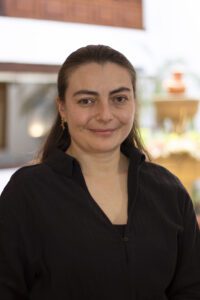
María Cecilia Londoño, Senior Information Manager, Humboldt Institute
María Cecilia Londoño is the Scientific Information Manager at the Alexander von Humboldt Institute in Colombia and co-Chair of the Group on Earth Observations Biodiversity Observation Networks (GEO BON). Maria Cecilia´s main experience is on the use of biodiversity geographic analysis for decision making, works on the production of biodiversity indicators for multiple users and on the development of web platforms for biodiversity data dissemination. Maria Cecilia coordinates and performs research that contributes to implement the knowledge to action cycle related to specific problems in the context of biodiversity conservation and sustainable development.
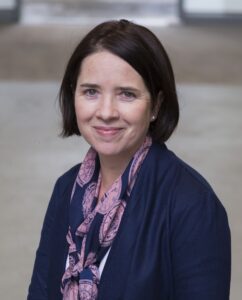
Melodie McGeoch, Monash University
Melodie McGeoch is Professor in Ecology at Monash and La Trobe Universities. She is internationally recognized for her work on the measurement and monitoring of biodiversity change, and the translation of biodiversity science for policy. Professor McGeoch is a leading scientist on biodiversity measurement and indicators, with more than 200 publications and 20 years of experience working across ecological theory, protected areas, and systems impacted by climate change and biological invasions.
Melodie is Coordinating Lead Author of the recent IPBES Assessment on Invasive Alien Species and their Control. She is 1st Vice Chair of the Global Biodiversity Information Facility (GBIF) Science Committee, and Co-Chair of the Species Populations Working Group of the Group on Earth Observations Biodiversity Observation Network (GEO BON).
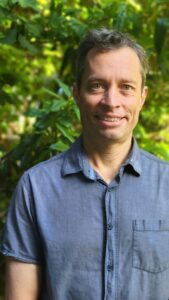
Eliot McIntire, Research Scientist, Canadian Forest Service
Dr. McIntire got his PhD from the University of British Columbia, in the Faculty of Forestry working on Forest Fires and Mountain Pine Beetle in Southern BC. He then completed a postdoctoral fellowship at University of Montana in Wildlife Biology, and held a Canada Research Chair in Forest Modeling in the Faculty of Forestry at Laval University. In 2011, he became a Research Scientist at the Canadian Forest Service, in Victoria, BC. He has been working on ways to confront the “all models are wrong” problem in Ecology for many years. In light of this, he is currently working on improving how we bring evidence to decision making through new approaches to prediction and forecasting.
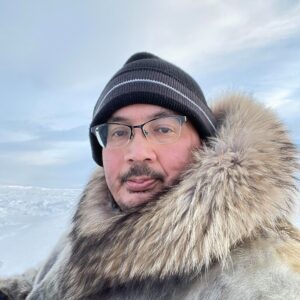
Richard Paton, Assistant Executive Director, Marine and Wildlife Stewardship, Qikiqtani Inuit Association (QIA)
Richard is the Assistant Executive Director, Marine and Wildlife Stewardship at QIA. Richard joined QIA in July of 2020. Richard is an accomplished communicator, leader and strategist. Previously he held Senior Management positions within several departments of the Government of Nunavut and Chief Operating Officer for Nunavut Tunngavik. He has been a strong advocate for Inuit employment and self-governance. His 20-years of work towards advancing Inuit employment has strengthened his resolve towards advancing Inuit governance in conservation in the Qikiqtani region.
He is a hunter, fisherman and father of 5 boys from the community of Iqaluit, Nunavut, Canada.
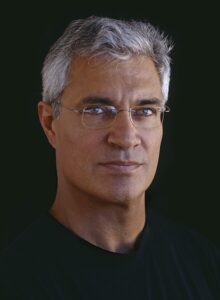
Louie Psihoyos, Oscar-winning filmmaker, Executive Director, Oceanic Preservation Society (OPS), National Geographic Photographer, and Founder of Projecting Change
Louie Psihoyos is an Academy Award-winning filmmaker and Executive Director of the Oceanic Preservation Society (OPS). He is recognized as one of the top still photographers in the world, having created iconic images for National Geographic for 18 years, and hundreds of covers for other magazines. Believing that film can be the most powerful weapon in the world, Louie founded OPS with Silicon Valley entrepreneur Jim Clark in 2005.
An ardent diver and dive photographer, Psihoyos’ mission is to show the world the decline of the oceans–our planet’s most crucial resource. Circling the globe dozens of times on photographic missions, he collects the imagery and stories underlying the compelling issues that challenge and threaten the natural world while connecting with environmentalists who are working to save the planet.
Psihoyos’ first documentary film, The Cove, won the Academy Award for Best Documentary Film of 2009 and over 75 other awards around the world. An annual dolphin hunt in a secret cove in Taiji, Japan suggests a microcosm of a larger picture: man’s disregard for the planet. The film garnered immense critical praise and has been seen by millions of viewers worldwide.
His second film, Racing Extinction, follows a team of artists and activists as they expose the hidden world of extinction with never-before-seen images. The film premiered on Discovery in 220 countries and territories on the same day, was nominated for an Emmy (Exceptional Merit in Documentary Filmmaking) and an Academy-Award (Best Song), and sparked the #StartWith1Thing movement. With partner Obscura Digital, Psihoyos was the creative mind behind the unprecedented large-scale video projections of endangered species onto the United Nations Headquarters, Empire State Building, and the Vatican.
Psihoyos most recently finished directing The Game Changers, executive produced by James Cameron. The film tells the story of James Wilks — an elite special forces trainer and winner of The Ultimate Fighter — as he travels the world on a quest for the truth behind the world’s most dangerous myth: that meat is necessary for protein, strength and optimal health. What James discovers permanently changes his relationship with food and his definition of true strength.
Through the production of compelling film and imagery underlined by moving narratives, contemporary crises, and heroic film subjects, Louie Psihoyos is radically changing how people perceive documentaries.

Laura Pollock, Assistant Professor, McGill University
Laura Pollock is an Assistant Professor that leads the Quantitative Biodiversity Lab in the Biology Department at McGill University in Montréal. She develops novel methods for linking large-scale biodiversity data with conservation applications with a focus on identifying conservation hotspots, predicting biodiversity change, and developing conservation indicators.

Tamara Rudic, Science Communications Specialist, Center for Biodiversity and Global Change, Yale University
Tamara is the science communication specialist at the Yale Center for Biodiversity and Global Change (BGC) where she focuses on connecting biodiversity data and tools developed at the BGC to conservation users and decision makers worldwide. Her work involves the creation of multi-media communications products, product prototyping for online biodiversity tools, and collaborating with partner organizations to co-produce better interfaces and tools for delivering rigorous biodiversity data to conservation users. Tamara is passionate about viewing environmental and biodiversity issues through the lens of intersectionality and ensuring that human dimensions and environmental justice are always involved in conservation.
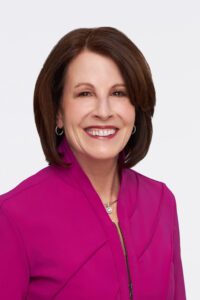
Alison Taylor, Chief Sustainability Officer, ADM
Alison Taylor is chief sustainability officer for ADM. She oversees the company’s global sustainability strategy and works closely with the Sustainability and Corporate Responsibility Committee of ADM’s Board of Directors. She oversees many facets of the company’s progress toward achievement of the UN Sustainable Development Goals, including Zero Hunger and Climate Action. She guides implementation of the company’s Respect for Human Rights policy, No-Deforestation policy, Strive 35 environmental stewardship program and ADM’s philanthropic efforts through ADM Cares.
Prior to joining ADM, Taylor worked for Siemens Corporation, where she was Vice President and Chief Sustainability Officer of the Americas. Taylor also worked on Capitol Hill as counsel for the U.S. House of Representatives Committee on Energy and Commerce, and chief counsel of the U.S. Senate Committee on Environment and Public Works. She was previously a partner in the law firm now known as Davis, Graham and Stubbs, LLC.
Taylor currently serves on the boards of the Nicholas Institute at Duke University, the Peggy Notebaert Nature Museum in Chicago, the Nature Conservancy-Illinois, and the Leadership Council of the Corporate Eco-Forum. She is also chairs the ADM Cares Committee and serves on the external advisory board of the ADM Institute for the Prevention of Postharvest Loss. She holds a bachelor’s degree from Duke University and a Juris Doctor from the University of Denver.
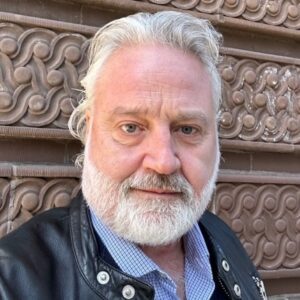
Jorgen Thomsen, Director, Climate Solutions, MacArthur Foundation
Jorgen Thomsen is the Director of Climate Solutions at the John D. and Catherine T. MacArthur Foundation. Prior to joining the foundation in 2009, Thomsen spent 14 years with Conservation International as Senior Vice President of the organization’s Conservation Funding Division and as Executive Director of the Critical Ecosystem Partnership Fund, which included leading a $260 million grant making and partnership development facility for civil society organizations in the most biodiversity-rich areas of the world.
Before this he was the chief executive of TRAFFIC, an organization that monitors trade in natural resources, and he held positions at WWF and IUCN, as well as in the Danish Ministry of Environment. Thomsen has a Master’s of Science in zoology and also attended law school at the University of Copenhagen in his native Denmark.
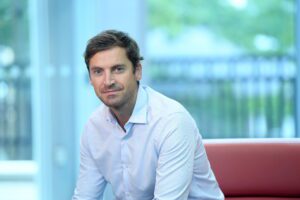
Derek Tittensor, Associate Professor and Jarislowsky Chair, Dalhousie University
Derek Tittensor is a Professor and the Jarislowsky Chair in Marine Ecosystem Forecasting in the Department of Biology at Dalhousie University in Halifax, Canada. Prior to this, he worked with the United Nations Environment Programme World Conservation Monitoring Centre to help mobilize scientific research on marine biodiversity. His work focusses on human impacts on marine biodiversity, particularly climate change, and on how we can better anticipate and adapt to impacts through improved conservation and management. His research has also helped to inform policy processes and platforms in the national and international biodiversity arenas. He also believes in the power of outreach and education, and is currently working with local communities in Nova Scotia to restore seagrass meadows.
Half-Earth Day Sponsors
We are grateful to the support of our generous sponsors for making Half-Earth Day 2023 possible.
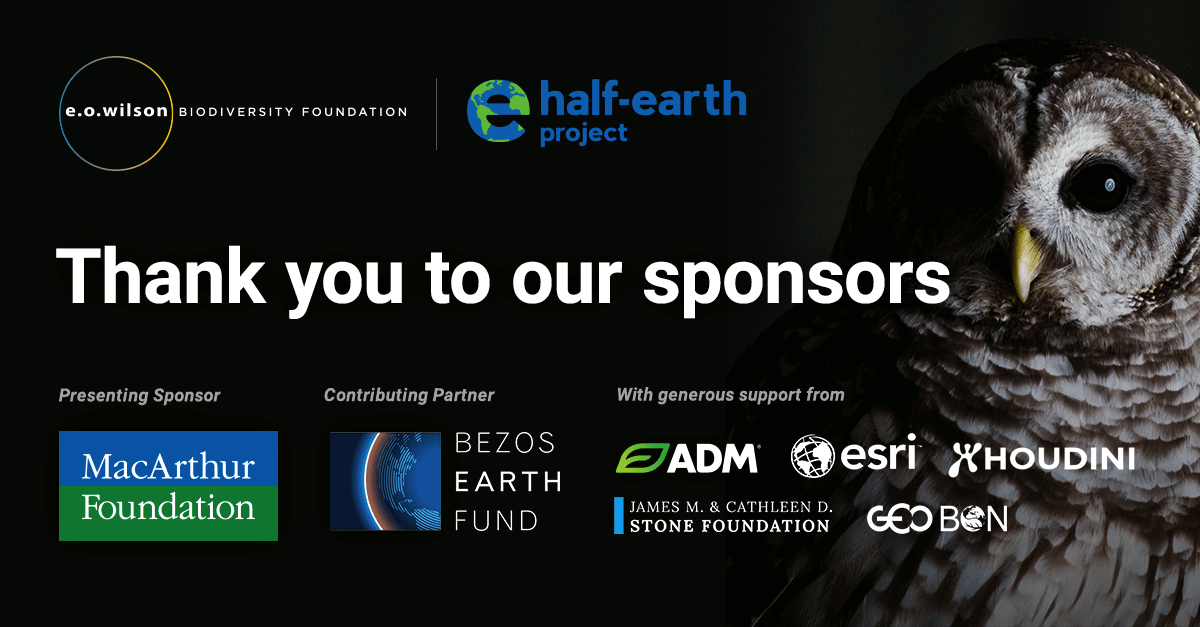
EXPLORE MORE
EXPLORE
ENGAGE

